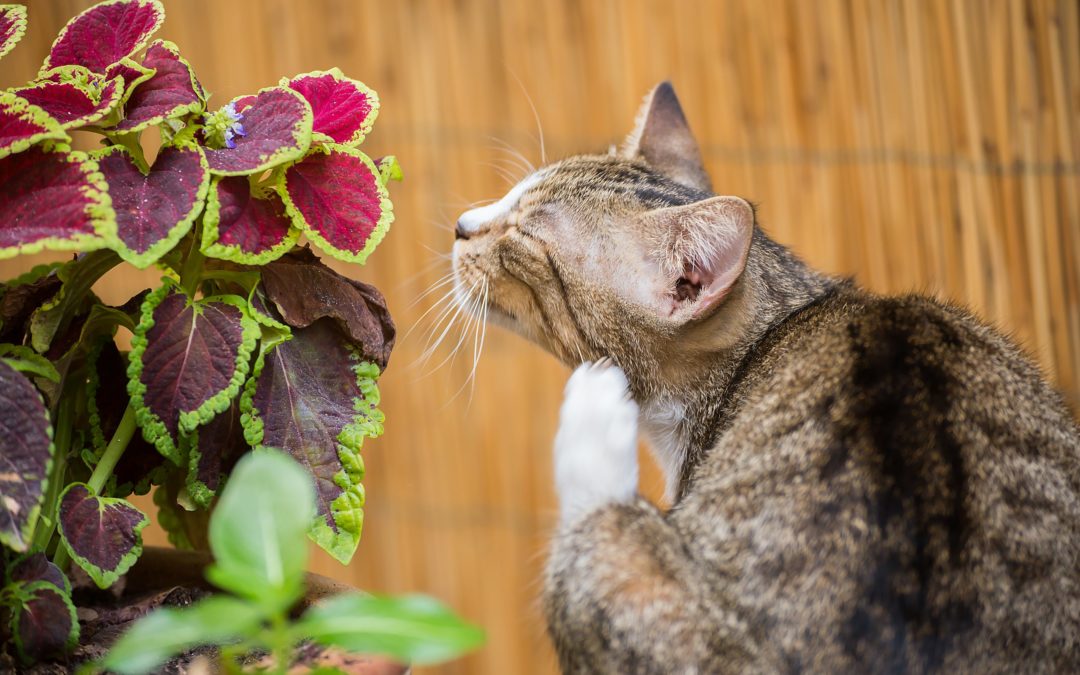As any pet parent knows, your family’s furriest members’ health and well-being are paramount to the happiness of the owner and pet. Just as with proper diet, exercise, and mental stimulus for humans being the ingredients for a happy life, pets require the same level of attention to their well-being.
Unfortunately, our feline companions also tend to be outside, around other animals, and subjected to situations that might warrant fleas and parasites even if always in the home. Can you win the war around these insidious threats to your feline’s health before they become dangerous? And what are some steps to remember when an infestation does occur?
Table of Contents
Why Worry about Cat Fleas and Parasites?
Cats are susceptible to such things as roundworms, hookworms, coccidia, and even heartworm. These parasites have different infestation methods, from insect bites to water and soil that your feline may drink or walk upon. Fleas are nasty little parasites that love to jump, and if an infestation happens, it can even impact humans that live with the infected feline. Ticks can be carriers of Lyme disease and other bloodstream infections, even in humans. These pests find their way into the home on shoes, clothing, bags, and other items, so just believing an indoor pet will be safe is a misstep in judgment.
These parasites can cause mild skin irritation on felines and humans alike to serious diseases. Be attuned to know the symptoms you need to look like are critical and annual check-ups and tests. Like different diseases humans can be afflicted with, many of these parasites will reveal themselves in different manners, and only blood tests may reveal them before it becomes a much bigger concern for your pet. Be diligent in the following items for the pest protection plan for you, your family, and your felines.
Indoor Cats Needs Flea Protection Too
Many pet owners will believe that they are in no danger of catching fleas because they keep their feline inside. That is not the case, and they need to be on a flee protection protocol even when indoors. Family, friends, and others will be going in and out of the home. These residents and visitors alike can inadvertently carry with them tiny pests on clothing or bags that may not impact full-sized humans but on your feline be the cause of itching and discomfort when transferred to them. Having good prevention for fleas is critical, and as a bonus, many of these products have additional safeguards against parasites and other common afflictions.
These easy to give normally by mouth preventatives or even topical options should be prescribed by a professional. Remember that depending on your location, it can also impact the preventions needed. When moving with a feline, it is critical that you immediately check in with your new veterinarian to ensure that the safeguards already in place will protect against local parasites, fleas, and ticks also.
Additionally, remember to start new felines on the preventatives from the moment the veterinarian believes it safe. Staying diligent and regular on these treatments will ensure no gaps cause your pet and infestation. Once infested, the ability to de-flea, get rid of parasites, and such can be time-consuming and costly, beyond what the preventative could have taken care of with proper application.
Have a Veterinarian You Trust on Stand-by
This is the absolute must-have on any feline wellness plan; a great veterinarian can never be fully substituted by research alone. Sure, a veterinarian’s expense is the first thing pet owners consider when trying to do it themselves in caring for their feline friends. The internet is a great resource for information, but nothing can overcome the knowledge of a veterinarian. They can help provide the best preventative solution recommendations; additionally, they remain trained on the most up to date dangers to your pet and to spot symptoms that might to an owner go unnoticed of certain parasites and dangers to your pet.
The veterinarian will provide you the best schedule of preventative prescriptions, check-ups, and necessary precautions. Additionally, immediately seeing this trusted member of your pet’s healthcare team will get them treatment timely to help minimize discomfort and life-altering complications when an infestation happens. Like your personal doctor, the veterinarian will be the person most attuned to knowing what is normal and not normal for your feline and how to keep infestations at bay best.
Cleaning Not Just Good for Dirt
Vacuuming and regular cleaning of your cat’s toys, bedding, and the home, in general, is one of the best preventative measures for feline fleas and parasites. Ensure that all areas are vacuumed, including behind furniture, sofa and chair cushions, and all carpeting. This attention to detail can help rid your home of eggs of some parasites, ticks, and fleas before they hatch. Additionally, dirt and other debris can be a feeding source for these developing infestations, and removal will add another layer of prevention to the other measures you are taking. Remember to always wash bedding, including your own, in hot water to kill these eggs.
Additionally, if an infestation does occur, all the above cleanings must occur at once of the entire home and the pet itself. The sprinkling of detergents such as Borax on carpeting and throughout the home, which contains Borate powder, can help kill the parasites when they ingest it.
Normally, your cat’s self-cleaning routines will dictate that shampooing or another cleaning is not needed regularly, but this rule does not apply during an actual infestation. Many shampoos contain chemicals again dangerous to your feline if consumed regularly but will be needed to help parasites’ ridding during an actual infestation.
Unfortunately, when an infestation occurs, finding the right shampoo to artificially clean the feline to minimize and kill the fleas, ticks, or parasites can be needed. Ensure you consult a veterinarian before selecting any topical treatments or shampoos to ensure the right product and no additional concerns arise from using the wrong product.
Lawn Maintenance to Reduce Cat Fleas & Parasites
Did you realize that proper landscaping and caring for your lawn can help minimize infestations in your feline? Ensuring that branches and other shrubbery are kept cut back for more sun does not allow moisture seeking parasites from flocking to your yard to make it home. Additionally, fleas love tall grass, and thus well-kept short grass can minimize their invasions.
Finally, all dead leaves, branches, and other debris should be removed from your yard. These types of things are breeding grounds for all sorts of parasites that can be dangerous to your feline and let us be honest – you also. Ensuring a well-maintained yard and home will help minimize any new infestations that can impact your feline, along with human residents.
During an infestation again, prevention will not be enough, and you might need to treat the home and law with a variety of chemicals to kill the parasites. This will be needed normally only for the worst of infestations and should be done alongside your veterinarian’s recommendation once you know what you are dealing with. Remember also diatomaceous earth can be spread in areas even in the house where ticks, fleas, and parasites might be found to help kill them in place.
During an infestation, this practice can help with ridding of the parasites, but many feline owners will do this as a preventative measure before this stage. Infestations are tricky to treat and unique depending on what parasite you are dealing with and the severity. Additionally, if humans are found to have contracted disease or have skin irritations consulting a doctor and the veterinarian may be necessary to build out the best plan. Obviously, prevention will always be the best recourse to making sure this stage of the problem is never attained.
You love your feline enough to want the best care for them. This will entail being on guard to prevent such things as ticks, fleas, and parasites from infesting and causing major health concerns for your cat. Regular veterinarian check-ups and annual routine exams to ensure that a professional is guiding your prevention plan are critical. Now that you have a preventative in place, regular and diligent application to your feline on the schedule dictated must be adhered to for best results.
Finally, washing bedding in hot water regularly, vacuuming all the nooks and crannies of your home, and keeping doorjambs, handles, and other regularly touched surfaces clean can kill eggs of these parasites before hatching. Finally, keeping your lawn well-trimmed, clean of dead leaves and debris, and finally, as much sunlight as possible will make your lawn less attractive to these pests. Even with all the right preventions being worked, an infestation can occur. Having a proper plan to cut off the infestation and ridding the home, bedding, felines, and humans of the pests should be in place. With regular attendance to prevention, having a good support team with a veterinarian, and of course diligence, you absolutely can win the war against feline fleas or parasites.

Jonathon Hyjek is an entrepreneur and cat-lover. He is married to Joy and they share their home with their 2 feline-friends, Franklin & Ollie. Jonathon is a self-admitted “Crazy Cat Guy”. He started this website because of his love for his own cats and their well-being.

